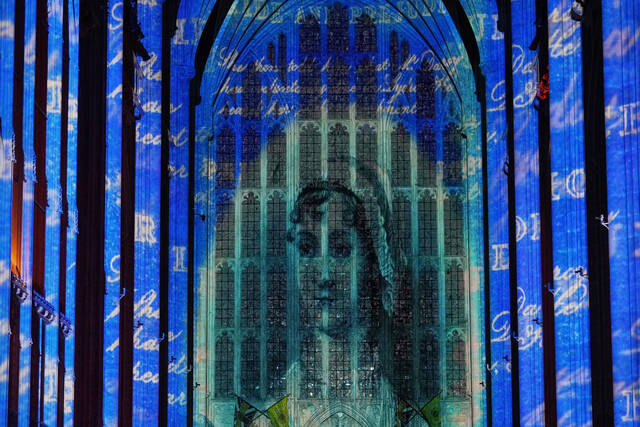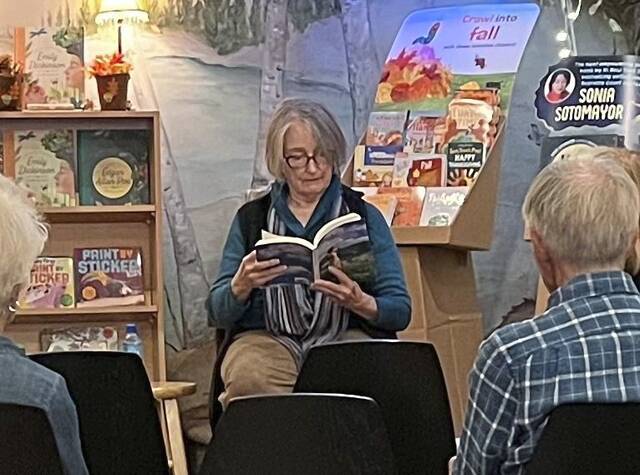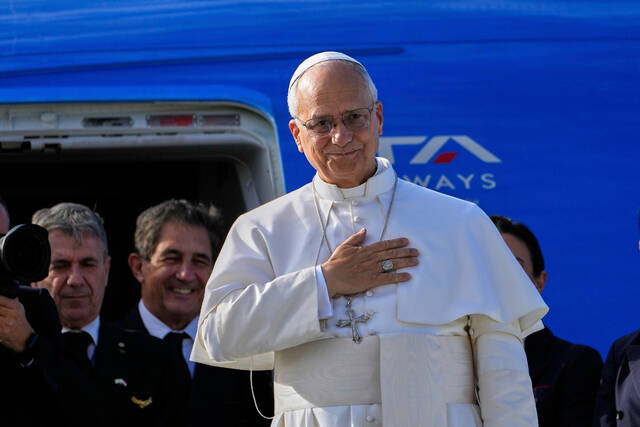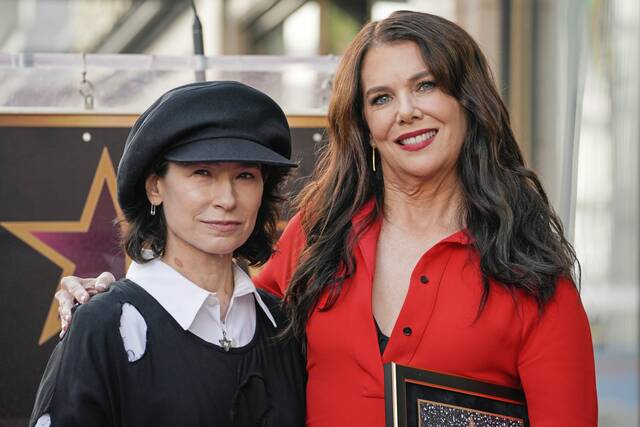Local historians and government leaders on Monday celebrated the work of Pulitzer Prize-winning historian and Pittsburgh native David McCullough and said he played a pivotal role in helping to preserve Southwestern Pennsylvania history.
McCullough, who grew up in Point Breeze, died Sunday at 89.
Two local history organizations — the Johnstown Area Heritage Association and Pittsburgh’s Heinz History Center — said they would not be what they are today without support and lobbying from McCullough.
Heinz History Center CEO Andy Masich said McCullough was essential to the founding of the Strip District center. Masich said McCullough helped secure funding to turn an old ice house into the state’s largest history museum and was there to help every step of the way until it was complete in 1996.
“We wouldn’t have the history center if it weren’t for David McCullough,” Masich said. “He was our guiding light.”
Although McCullough’s talent led him to do nationally recognized work in documentaries, motion pictures and books, Masich said McCullough loved Pittsburgh and that the city was “part of his DNA.”
Masich said that McCullough, who won two Pulitzer Prizes for books he wrote, made sure to include some mention of Pittsburgh in all of his books.
McCullough attended Shady Side Academy and then Yale University for college. In a social media post, Shady Side Academy shared their condolences and praised McCullough, saying he was likely the school’s most celebrated alumnus.
His role in Pittsburgh has been commemorated many times over the years. In 2013, the city renamed the 16th Street Bridge after McCullough.
Allegheny County Executive Rich Fitzgerald said McCullough never forgot what the Pittsburgh region meant to him.
“David McCullough was one of America’s great historians (but) he’s one of us, a man who grew up here with us,” Fitzgerald said in a statement. “Even though his life’s path took him elsewhere, he was always proud of his Pittsburgh roots.”
Masich said McCullough was a friend and mentor to him. What made McCullough so transcendent in the realm of history and media was that “he understood you could have all the facts, but without the story and human interest, you would never get people to listen,” Masich said.
He said McCullough’s family routinely talked about the people and places of Pittsburgh as they sat around the dinner table during his childhood, and that’s where McCullough learned to listen to other’s stories.
Masich said that as McCullough listened to his family talk about the Johnstown Flood of 1889 one night, he broke up the crater of his mashed potatoes with his fork, causing the gravy to flood his plate into his peas. Masich said that memory eventually inspired him to write a history of the Johnstown Flood.
McCullough’s first book, “The Johnstown Flood,” is widely credited with popularizing the region’s worst natural disaster and spreading the story beyond a regional understanding into national notoriety.
McCullough helped to make sure that visitors to Johnstown would know even more about that history, according to the Johnstown Area Heritage Association, which runs the Johnstown Flood Museum and other cultural sites in the Western Pennsylvania city.
Richard Burkert, president and CEO of the Johnstown Area Heritage Association, said McCullough’s book sparked enormous interest in the story of the flood, which made the founding of the Johnstown Flood Museum and association possible.
“Nobody would have thought to do a Johnstown Flood Museum without McCullough’s book,” Burkert said.
The museum was founded in 1973, just five years after the 1968 publication of “The Johnstown Flood.” Burkert said that for decades in the early 1900s, regional leaders had wanted to get away from talking about the flood, fearing it would drive away economic activity.
“McCullough brought that knowledge of the Johnstown flood to new generations,” Burkert said. “That book validated reasons to preserve that story.”
Historian Sue Morris, of McCandless, said McCullough was known for his ability to inject engaging narratives and first-person accounts into his historical documentation. She said his injection of personal stories into the narrative about the Johnstown Flood helped to teach that history to people far beyond just Western Pennsylvania.
“He put out this narrative that still stands up. He saw things on a grand scale,” Morris said. “He could take the events that happen here, and show how important it was to the world.”
She said McCullough also helped Pittsburghers realize their stories were worth being told, especially at a time when the region struggled with self-esteem issues.
“We have this obsession with nostalgia but also sort of an inferiority complex,” Morris said. “McCullough recognized that and said, ‘No, these stories are important and deserve to be told.’”
Masich said McCullough’s pride in boosting Pittsburgh’s history and his efforts to help start the Heinz History Center helped to change Pittsburghers perspective on how they viewed the region. He said many Pittsburghers had lost confidence in the region by the 1980s and 1990s after the steel industry collapsed and many residents left for greener pastures.
“David McCullough and the history center helped restore our confidence in ourselves and the hope for the future,” he said.








